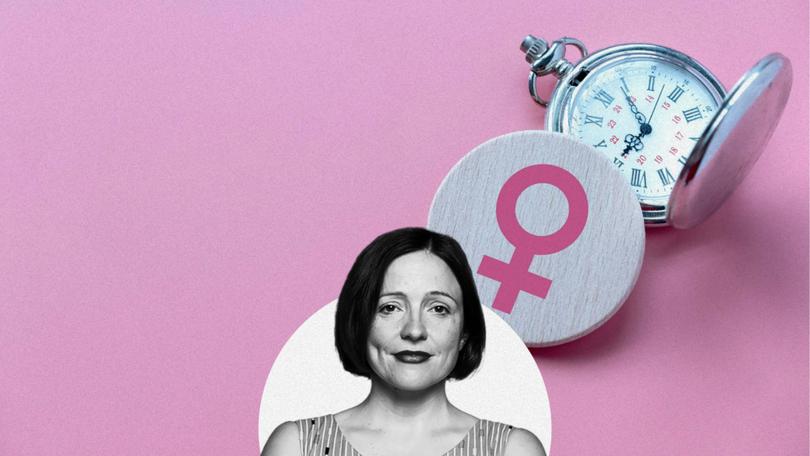KATE EMERY: Why legislated menopause leave undermines gender equality in the workplace
KATE EMERY: Women don’t need menopause leave. OK, that’s not quite right: some women need menopause leave.

Women don’t need menopause leave.
OK, that’s not quite right: some women need menopause leave.
But women as a whole, working Australian women across the board, need legislated menopause leave the way we need spikes on speculums, JK Rowling defending our rights or those special pink “pens for ladies” Bic tried to introduce.
Sign up to The Nightly's newsletters.
Get the first look at the digital newspaper, curated daily stories and breaking headlines delivered to your inbox.
By continuing you agree to our Terms and Privacy Policy.Not because the symptoms of menopause are not real and potentially debilitating.
Not because dealing with those symptoms, on average for about seven years, doesn’t drive women out of the workplace.
Not because stigma against menopause doesn’t exist. There will absolutely be readers who saw the m-word in the first line of this column, got the ick and stopped reading and I can feel free to call them big babies in this sentence because they’re not going to see it.
Women don’t need menopause leave because there’s little evidence that legislating leave for women’s reproductive health achieves what it is supposed to.
Older women — already less likely to be hired or promoted at work for reasons best described as “it’s the sexism stupid” — also, frankly, don’t need to give bosses another reason not to hire them.
There are other basic steps we could take to make workplaces more friendly for women dealing with reproductive health issues that would have a more practical effect.
It’s timely to talk about, given Spain recently marked a year since introducing paid menstrual leave. The policy, the first of its kind in Europe, has reportedly been taken up fewer than 2000 times in a country of 48 million people.
That mirrors the experience in other countries with similar policies, including in Japan where it’s said to be both poorly used and a source of resentment. Instead of reducing stigma, some women report feeling too embarrassed to access the leave even if they need it.
In Australia, the debates about menstrual leave and menopause leave are intertwined, with unions calling to have “reproductive leave” of 10-12 days per year included in the Fair Work Act for women experiencing symptoms related to their period or menopause.
As a pro-union, pro-woman, bleeding heart I should be into this.
However, I am not convinced that legislating time off for women having painful periods or a tough menopause is going to do anything for gender equality in the workplace.
Instead of destigmatising menstruation and menopause, there’s a risk reproductive leave does the opposite and medicalises what are normal bodily functions (albeit frequently deeply annoying ones).
Rather than encouraging women to opt out of work to deal with the unpleasant side effects of womanhood, I’d like to see workplaces better accommodate them.
Basic things like ensuring workers have access to hot water, soap and the toilet would help. Space to deal with symptoms, in the same way that breastfeeding mothers are given opportunities to express, seems logical.
Flexible work policies so women can work from home, covered in heat packs or ice packs as required, would be simple enough in many industries.
Uniform policies that allow women experiencing, say, hot flushes, to wear short sleeves or change regularly also make sense.
I’m also unclear what makes menopause and menstruation more demanding than the many other conditions Australian men and women have to deal with in the workplace every day.
Which is to say: if the opportunity for workers to take what amounts to extra sick leave is on the table, why not extend it to cover everything from reproductive health to chronic illness and poor mental health?
Let women and men access an extra 10-12 days of leave a year if they have a condition that merits it, whether that condition is menopause, painful periods, depression or diabetes.
Better that than encouraging women to isolate at home like a Medieval peasant who believed periods could kill crops and dull mirrors, fuelling both guilt and resentment and freeing workplaces from the obligation to make any changes at all.
Women need that like we need, well, seven years of headaches, anxiety, hot flushes and mood swings.
